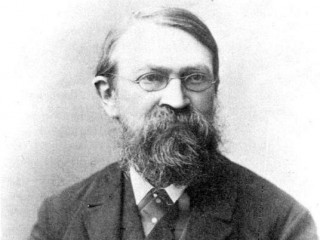
Ernst Mach biography
Date of birth : 1838-02-18
Date of death : 1916-02-19
Birthplace : Turas, Moravia
Nationality : German
Category : Science and Technology
Last modified : 2011-04-21
Credited as : Physicist, and philosopher of science,
Ernst Mach, an Austrian physicist and philosopher of science, made important contributions in several sciences but especially in the areas of the history and theory of science and of perception.
Ernst Mach was born on Feb. 18, 1838, in Turas in Moravia, then part of Austria and subsequently a province of the former Czechoslovakia. His father, Johann, was a high school teacher, and Ernst was tutored at home until he entered the University of Vienna, from which he graduated in 1860. In 1864 he became professor of mathematics at Graz; in 1867 he became professor of physics at Prague, a post he held until 1895, when he was appointed to the chair of the history and theory of the inductive sciences at Vienna. He was active in academic and political affairs, and after his retirement he was appointed to the upper house of the Austrian Parliament. He died near Munich on Feb. 19, 1916.
Mach is generally credited with establishing the study of the philosophy of sciences as a separate discipline. He brought to this study, in his words, "an incorruptible skepticism and independence." One of his most important works, The Science of Mechanics (1883), is an attack upon the "objective descriptions" of nature which in Newtonian physics produce such concepts as the "absolute" nature of space and time. Demonstration is a misplaced rigor which mistakes experiential summation for prediction. The relativism of his empiricism was an important corrective for modern science by its insistence that all concepts be traced to the objects to which they refer together with an explanation of the rules by which they are applied. For example, atomic theory is an explanation in physics and chemistry. But if such tools are taken to be unobservable realities rather than "theoretical models" for summarizing facts, then science has made the fatal error of identifying description with explanation.
Obviously Mach's views on the nature of science derived from his analysis of human knowledge. He acknowledged his indebtedness to the English empiricists, especially George Berkeley and David Hume. To him "the world consists only of our sensations," and this phenomenalism follows the empiricist tradition of deriving "ideas" from "impressions." Knowledge consists in communicating the observed distinctions of our sensations. From Mach's views has come the tradition of distinguishing between the public and private data of sensation, that is, that part of man's sensory experience which can be confirmed by others and man's individual perceptions. On this basis Mach proposed a unified theory of the sciences. The difference between physics and psychology, material and mental, is relative to the perspective of the observer. Color can be considered physically in terms of its dependencies or psychologically in terms of its receptivity. This scientific theory consists of coherent, concise descriptions of observed phenomena.
The Vienna Circle of contemporary positivism was originally founded as the Ernst Mach Society. Mach also gave his name to the Mach number, the standard scale for gradations of supersonic speed.

















